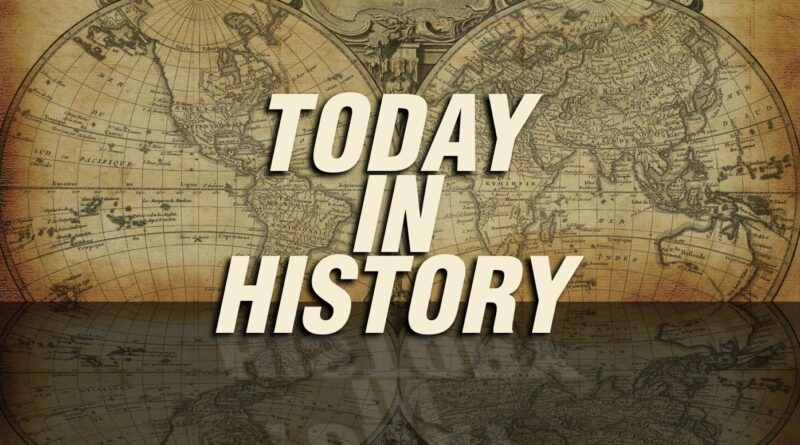February 19: This Day In World Christian History
Throughout history, February 19 has been a significant date in the Christian faith, marked by pivotal events, the birth of influential leaders, and the passing of notable figures who shaped Christianity worldwide. From early church persecution in North Africa to the expansion of missionary work across the continent, this day holds deep historical and spiritual significance.
Here are some significant events in Christian history that occurred on February 19:
- 607 AD – Pope Boniface III was consecrated as the 66th pope of the Catholic Church. He is known for securing Emperor Phocas’ decree, which recognised the bishop of Rome as the head of all churches.
- 1377 AD – John Wycliffe, an early advocate for translating the Bible into the common language, was summoned before the Bishop of London to answer charges of heresy. Wycliffe’s teachings later influenced the Protestant Reformation.ra:
- 1568 AD – Miles Coverdale, an English reformer who helped translate the first complete printed English Bible, passed away. Coverdale played a key role in producing the Great Bible, which influenced later translations like the King James Bible.
- 1807 AD – William Wilberforce, a devout Christian and British politician, led a debate in the UK Parliament on abolishing the transatlantic slave trade. His lifelong Christian convictions helped end slavery in Britain.
- 1948 AD – The Dutch Reformed Church in South Africa formally adopted the theological basis for apartheid. Many Christian leaders later condemned this stance, and figures like Desmond Tutu and Nelson Mandela played key roles in its eventual dismantling.
- 1984 AD – L. Nelson Bell, the father-in-law of evangelist Billy Graham and a strong advocate for Christian missions, passed away. He was a missionary doctor in China and co-founded Christianity Today magazine.
See Also: February 18: This Day In African Christian History
- AD 250 – Persecution of Christians under Emperor Decius: Many Christians in North Africa, particularly in Carthage (modern-day Tunisia), faced persecution for refusing to sacrifice to Roman gods. Among them was St Cyprian of Carthage, a bishop who later became a martyr.
- 1885 – The first Anglican bishop of Uganda, James Hannington, was martyred for bringing Christianity to Uganda. His mission paved the way for the rapid spread of Christianity in East Africa.
- 1899 – Samuel Ajayi Crowther’s influence continued to shape Christianity in Nigeria. Though Crowther passed away in 1891, his legacy in translating the Bible into Yoruba and promoting indigenous African leadership in the church remained influential in this period.
- 1954 – The Catholic Church officially condemned racial segregation in South Africa, marking an early stance against apartheid.
- 1988 – The Ethiopian Orthodox Tewahedo Church declared the Ark of the Covenant to be housed at the Church of Our Lady Mary of Zion in Axum, Ethiopia, reinforcing one of Christianity’s biggest mysteries in Africa.
- 1997 – In Sudan, Christian persecution intensified as the Islamist government continued to crack down on Christian converts and missionaries. Many churches were destroyed, and believers were forced into hiding.
Notable Birthdays
- 1473 – Nicolaus Copernicus (Poland): A Catholic cleric and astronomer who proposed the heliocentric model of the solar system. Though controversial at the time, his work was later accepted by the Church.
- 1807 – William B. Johnson (USA): First president of the Southern Baptist Convention and a key figure in Baptist missionary work.
- 1924 – Edward Lekganyane (South Africa): A leader of the Zion Christian Church (ZCC), one of the largest Christian movements in Africa. His leadership helped expand the church’s influence across Southern Africa.
Notable Deaths
- 1568 – Miles Coverdale (England): An English reformer and translator of the first complete printed English Bible. His translation work influenced later versions, including the King James Bible.
- 1972 – John Grierson (Scotland): A Presbyterian filmmaker who pioneered Christian documentaries to spread the gospel.
- 1891 – Samuel Ajayi Crowther (Nigeria): The first African Anglican bishop of West Africa, who translated the Bible into Yoruba. His work in Christian missions and education laid the foundation for Nigerian Christianity. Though he died on December 31, 1891, his legacy continued shaping African Christianity during the colonial era.
- 1998 – Laurent Cardinal Monsengwo Pasinya (Democratic Republic of Congo): A Catholic bishop and theologian known for his role in promoting peace and democracy in the DRC.
- 2018 – Hugh Masekela (South Africa): Though best known as a jazz musician, he was also a Christian and an anti-apartheid activist who used music to inspire change and faith-based resistance.
Content Credit| Ajibola Emmanuel Adebayo
Picture Credit | https://www.koamnewsnow.com/




